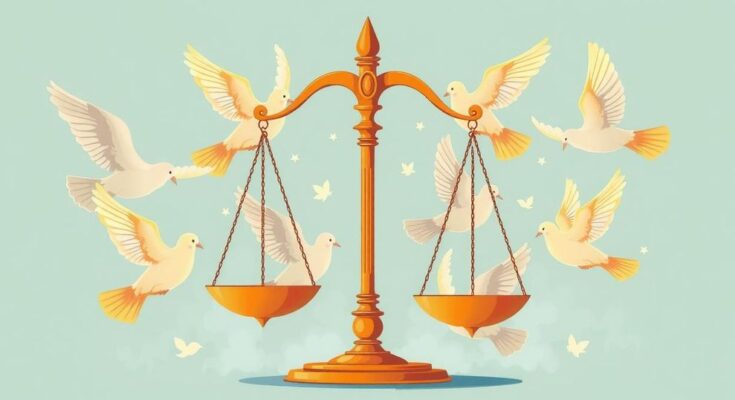Senegalese authorities are being urged by Amnesty International to deliver justice to victims of protests from 2021 to 2024, underlining the issues posed by the amnesty law that protects security forces. Significant fatalities and injuries were reported during these protests which arose after the arrest of opposition leader Ousmane Sonko. Amnesty International emphasizes the necessity for accountability and justice for victims while advocating for the repeal of the amnesty law.
Senegalese authorities are urged to ensure justice, truth, and compensation for the victims of violent protests that occurred between 2021 and 2024, as stated by Amnesty International. This call for justice comes on the anniversary of the amnesty law enacted on March 6, 2024, which protects security forces from prosecution for actions taken during political protests.
The amnesty applies to events related to demonstrations or politically motivated incidents from February 1, 2021, to February 25, 2024. Notably, these protests arose following the arrest of opposition leader Ousmane Sonko, with security forces reportedly employing excessive force, resulting in at least 65 fatalities, over 1,000 injuries, and approximately 2,000 arrests.
Marceau Sivieude, the Interim Regional Director for West and Central Africa at Amnesty International, emphasized the importance of prosecuting security forces for their wrongful actions during the protests, stating, “Justice, truth and reparation require that security forces allegedly responsible for excessive and illegal use of force during protests be prosecuted.”
Seydi Gassama, Executive Director of Amnesty International Senegal, noted that while recent financial assistance to victims and families is a positive step, it does not fulfill their demands for justice. He insisted on the need for the repeal of the amnesty law to prevent future violations and deliver justice to those affected.
The unrest in Senegal was ignited in March 2021 by the arrest of Sonko, which fostered further protests over ongoing political tensions, including allegations of President Macky Sall’s intentions to pursue a third term and delays in the presidential elections scheduled for February 2024.
During the electoral campaign for early legislative elections in November 2024, Sonko pledged to repeal the amnesty law if elected. His party achieved a significant victory in these elections. In 2024, the Senegalese government began providing financial assistance to some victims of unlawful detentions, which was expanded in January 2025 to include families of those killed in protests and additional victims.
The Ministry of Family and Solidarities reported a total of 79 deaths and assistance for 2,172 former detainees, with these measures not being part of a judicial process. Amnesty International has consistently criticized the amnesty law and has advocated for upholding the right to peaceful protest under its “Protect the protest” initiative.
In conclusion, Amnesty International’s call to the Senegalese authorities stresses the urgent need for justice for victims of the violent repression of protests from 2021 to 2024. The amnesty law is viewed as a barrier to accountability, which must be addressed to ensure that such human rights violations do not recur. The efforts made thus far seem insufficient to meet the victims’ demands for justice, highlighting the necessity for continued advocacy in safeguarding rights to peaceful protest and ensuring justice for those affected.
Original Source: www.zawya.com




